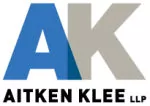In the continuing saga between broadcasters and set-top boxes, the Federal Court of Appeal handed a group of Canadian broadcasters a temporary victory in their fight against TVAddons.
Background
Set-top boxes generally connect televisions to various media sources. Kodi is open-source software implemented in various set-top boxes and allows users to access online media, such as podcasts and YouTube, as well as locally-stored media. Kodi users can download Add-Ons to enable them to access new media sources. The TVAddons website – operated by Adam Lackman – provides over 1400 Kodi Add-Ons. A group of Canadian broadcasters, concerned that content that they had the right to communicate was being made available by 22 of these add-ons, commenced an action for copyright infringement.
The Ex Parte Order
At the outset of the action and without notice to TVAddons, the Broadcasters sought and obtained an interim injunction and an Anton Piller order, the stated goal of which was to completely shut down the Defendant's TVAddons domains:
Justice: And on the next page, paragraph 5, so the experts would deactivate the TV Add-ons domains and sub-domains, so you really want to neutralize the Defendant's operations?
Lawyer for the Plaintiffs: Yeah, completely.
Justice: Completely ...
Lawyer for the Plaintiffs: Yeah.
Justice: So it's more than saying you're enjoined of not operating or communicating, you really want to neutralize the guy.
Lawyer for the Plaintiffs: Yeah, completely, that's for sure. Yeah. We use his passwords, we shut down everything, we change the password and we change everything and it cannot be reactivated by him or by someone else. That's the goal.
In addition to requiring TVAddons to cease the allegedly infringing activities, the interim injunction required Mr. Lackman to provide the login credentials for all accounts relating to TVAddons, including social media accounts, so that they could be deactivated. The Ex Parte Order permitted the Broadcasters to make copies of and take certain documents from Mr. Lackman's residence, and to copy digital media.
A copy of the Ex Parte Order may be found here.
The Review Decision
The Ex Parte Order required the Broadcasters to bring a motion for a review of the execution of the Anton Piller portion. Justice Bell took issue with several aspects of the execution:
[19] According to the Anton Piller Order, the "search" was to be conducted between the hours of 8 a.m. and 8 p.m., unless it was reasonably necessary to depart from those hours. I conclude that this search includes any interview considered necessary by the independent solicitor and/or Plaintiffs' counsel. In his affidavit, the independent solicitor deposed that on June 12, 2017, the questioning of the Defendant commenced at 2:40 p.m. and "lasted until approximately midnight". The interrogation (my word) of the Defendant therefore lasted more than 9 hours. I acknowledge that the interrogation was interrupted, according to the independent solicitor, by dinner, and an opportunity for the Defendant to speak to his lawyer. However, it is important to note that the Defendant was not permitted to refuse to answer questions under fear of contempt proceedings, and his counsel was not permitted to clarify the answers to questions. I conclude unhesitatingly that the Defendant was subjected to an examination for discovery without any of the protections normally afforded to litigants in such circumstances (discovery). Here, I would add that the 'questions' were not really questions at all. They took the form of orders or directions. For example, the Defendant was told to "provide to the bailiff' or "disclose to the Plaintiffs' solicitors".
[20] I find the most egregious part of the questioning to be in in the independent solicitor's affidavit, wherein he deposes that counsel for the Plaintiffs "provided Defendant Lackman with some names" of other people who might be operating similar websites. It appears the Defendant was required to associate that list of 30 names with names, addresses and other data about individuals that might have some knowledge or relationship to those names. ... I conclude that those questions, posed by Plaintiffs' counsel, were solely made in furtherance of their investigation and constituted a hunt for further evidence, as opposed to the preservation of then existing evidence.
Turning to the conditions required for the issuance of an Anton Piller order, Justice Bell took into account TVAddons' evidence that the vast majority of the Add-Ons were not infringing. Justice Bell further noted the actions used by the Broadcasters' expert to access infringing material could be replicated using Google, raising the possibility that the Add-Ons were protected by the common carrier defence provided by paragraph 2.4(1)(b) of the Copyright Act as interpreted by the Supreme Court of Canada in its 2004 SOCAN decision. Justice Bell held that the Broadcasters had not established a strong prima facie case in light of this evidence, and concluded that the Anton Piller Order must fall.
The Broadcasters also sought an interlocutory injunction to replace the interim injunction. At the Review Hearing, the Broadcasters admitted that the vast majority of the Add-Ons available from TVAddons were noninfringing. Mr. Lackman had an arguable case that he had not violated the Copyright Act. Since TVAddons was the Mr. Lackman's only source of income, any injunction would effectively bring the litigation to a close. As a result, Justice Bell decided not to issue an interlocutory injunction.
A copy of the Review Decision may be found here.
Stay Pending Appeal
The Broadcasters have appealed the Review Decision. The Broadcasters successfully sought a stay of the portions of the Review Decision that vacated the Anton Piller Order and dismissed the motion for the injunction until the appeal is decided on its merits.
A copy of the Stay Decision may be found here.
The content of this article is intended to provide a general guide to the subject matter. Specialist advice should be sought about your specific circumstances.

